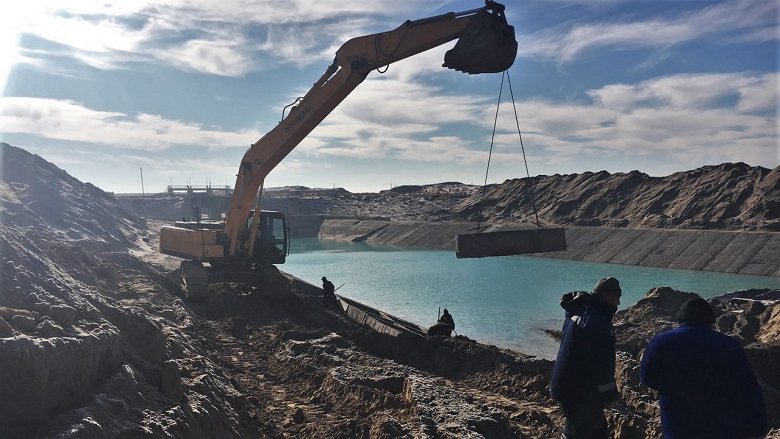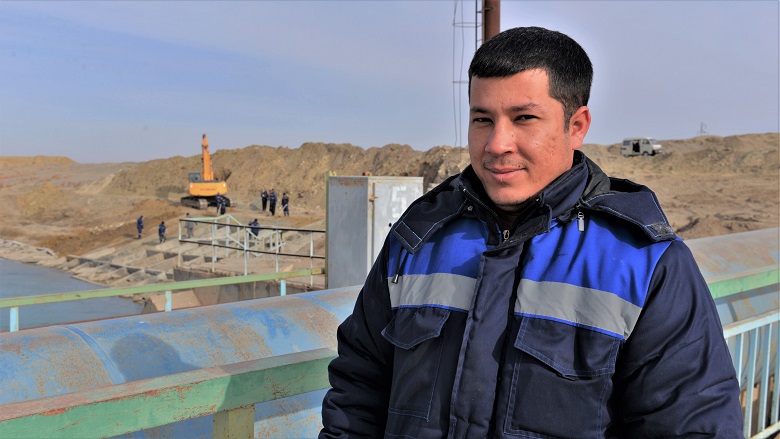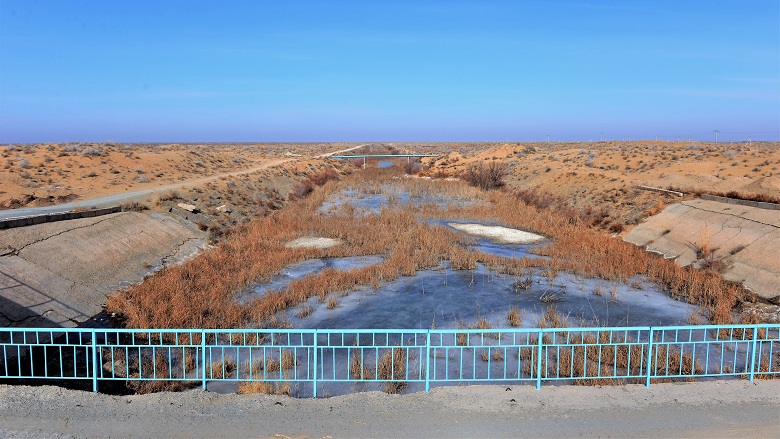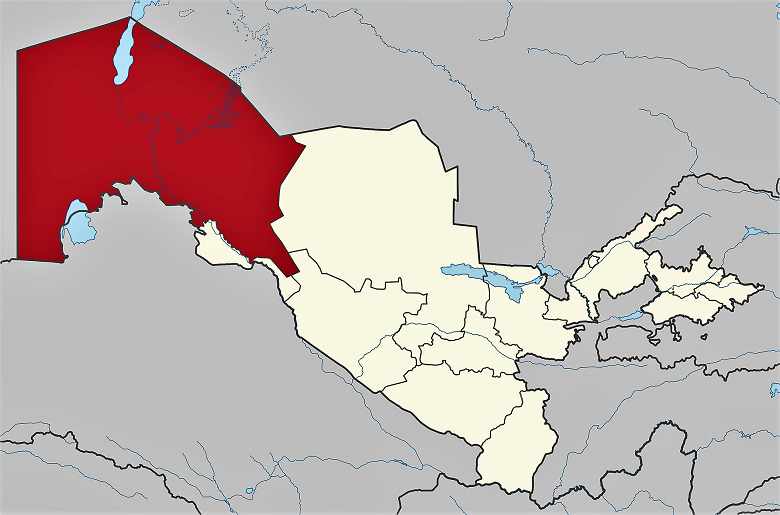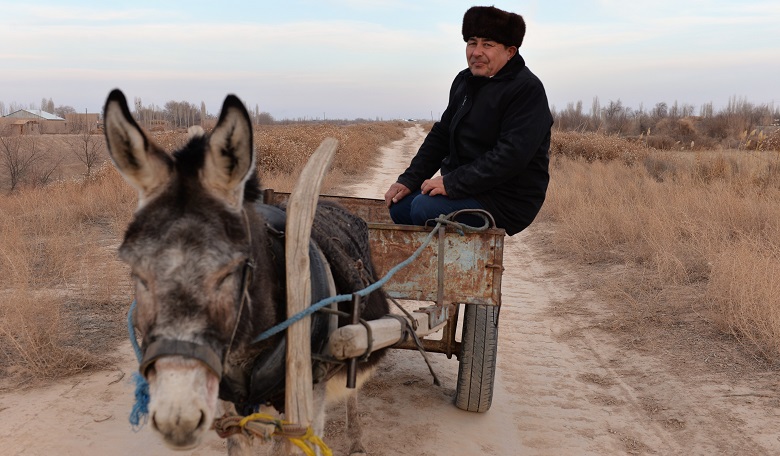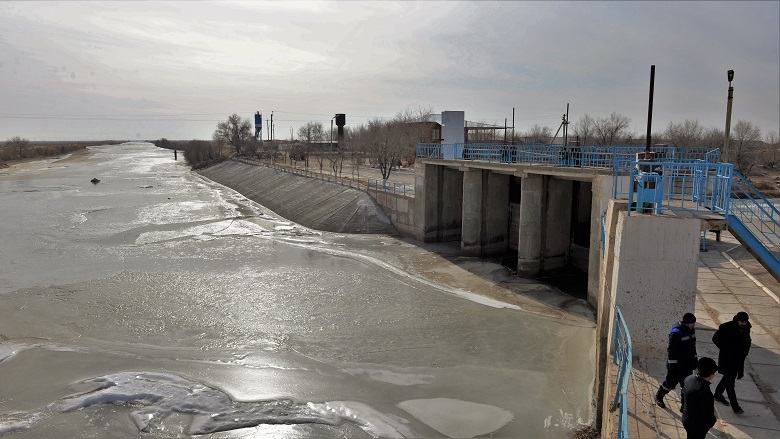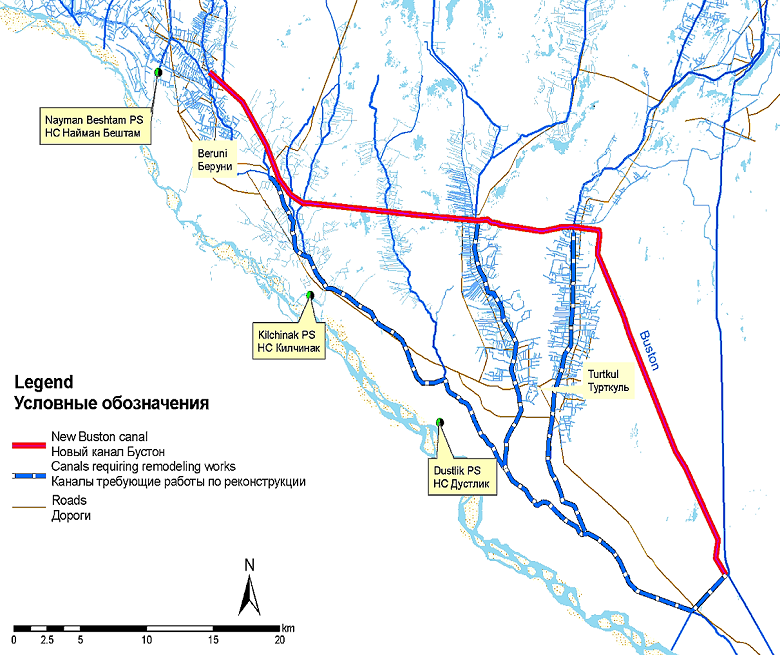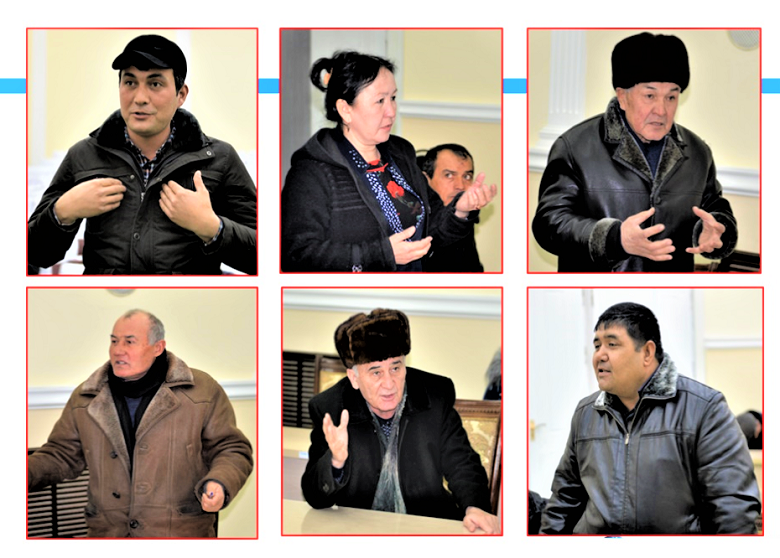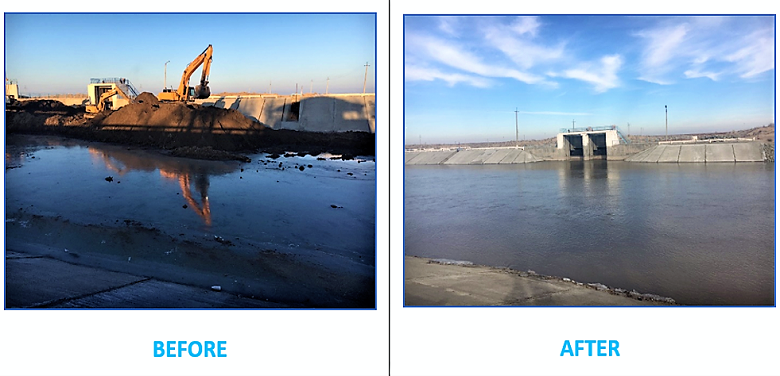Consequently, the local population has been impacted by increased food insecurity, forcing many people to endure severe living conditions, or to relocate. The collapse of the fishing industry, and decline in the agriculture, healthcare and education systems have added to outward-migration. Up to 30% of working-age people in Karakalpakstan have left to find work in neighboring Kazakhstan and Russia.
The economy of the region is mainly supported today by the production of cotton, livestock and melons – but it also relies heavily on extensive irrigation development, much of which is poorly managed, unfortunately. Improving irrigation systems is therefore critical to helping the local population here move out of poverty.
Large-scale irrigation and drainage development in Uzbekistan started in the late 1950s, with the construction of extensive waterworks, reservoirs and irrigation networks – but this water infrastructure is now aging. Due to deteriorating infrastructure and poor water management, it is estimated that the country loses about US$1.7 billion annually.
The South Karakalpakstan Water Resources Management Improvement Project covers three districts, including Beruniy, Ellikkala, and Turtkul districts. More than 40% of the irrigation supply in this area continues to depend on three major pumping stations and more than 20 floating pumping stations that withdraw water from the Amu Darya river. The total annual energy cost of pumping water amounts to about US$2.4 million.
To reduce the dependence on pumping, the project will develop a gravity off-take from the Tuyamuyun reservoir and dismantle all lower Amu Darya pumping stations serving the project area. This will result in energy savings equivalent to the annual consumption of a city of 160,000 inhabitants.


